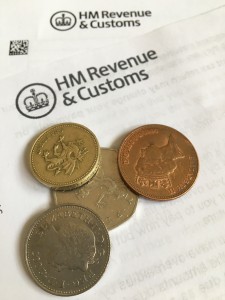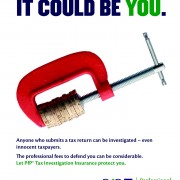Points from the 2015 Summer Budget…..
 Dividend taxes to be changed
Dividend taxes to be changed
This could be a big one!! Until more details are released we won’t know the impact it will have on how small business owners remunerate themselves.
The usual dividend tax credit, which means there is usually no additional tax to pay if you are a basic rate tax payer, will be replaced by new £5,000 tax-free dividend allowance. The tax rates on dividend is also set to be increased! It appears the governments plan is to tax those with “significant dividend income” more, although it is unclear what will be deemed as significant? Those with modest (I presume less than £5,000) will see no change or a cut in the tax paid.
As soon as we have more information on this we will post another blog.
**UPDATE**
More details on the above dividends tax changes are available and it looks as though dividends within the basic rate band will attract a 7.5% tax liability!! This means if you take around £28,000 of dividends per year and a £10,600 salary you tax bill will go from around £0 to around £2,000!!! That is a huge increase, not so good for small businesses!! When the finer details are known we’ll let you know.
Corporation Tax
Hooray!! Corporation tax is set to be cut by 2% by 2020, down to 19% in 2017 and 18% in 2020. This seems to be a good thing, but I’ll reserve judgement until we see how the dividends tax is going to be changed – it may well be six of one, half a dozen of the other! Looks like this is a small token to owner managed businesses to compensate for the increase in the dividends tax increases above.
Employment Allowance – NIC
This reduces the amount of Employers’ National Insurance your business has to pay to HM Revenue & Customs. It is currently set at £2,000 per annum, but is set to be increased to £3,000 per annum from April 2016. Although this may be withdrawn for “one man band” businesses – more details to follow.
National Living Wage
From April 2016 a new #nationallivingwage of £7.20/hour will be introduced for those over 25. This is set to rise to £9/hour by 2020.
Personal allowance
Is set to rise from £10,600 to £11,000 in 2016-17. The government are aiming to increase this to £12,500 by 2020, plus law will be passed so that once a person’s pay reaches this level, if they’re working a 30 hour week and on the National Minimum Wage won’t pay income tax at all.
The family home and Inheritance Tax
Under the current regime, estates over the tax free allowance of £325,000 (per person) will pay Inheritance Tax at 40%. Married couples and civil partners can pass any unused allowance to one another.
From April 2017, each individual will have the option to take advantage of the family home allowance so that the family home can be passed to their grand-children or children free of Inheritance Tax. This is set to be phased in from the 2017-18 tax year.
This means the current allowance of £325,000 will effectively increase to the allowance plus the value of the family home. Of course there are limitations, the total tax-free allowance for a surviving spouse or partner cannot exceed £1 million in 2020-21 (this is when we believe it will be fully phased in).
The allowance will also be withdrawn for those estates that are worth over £2 million.
Pensions
If you’re earning more than £150,000 per annum the level of pension contributions you can claim tax relief on will be reduced. More details to follow, but we expect this to be on a sliding scale.
Higher rate threshold
This is set to be increased from £42,385 in 2015-16 to £43,000 in 2016-17, meaning you’ll pay less tax at 40%.
Annual investment allowance
This was temporarily set to help businesses invest in business assets (computers etc.) and meant you received a 100% allowance against your profits. This is set to be permanently fixed at £200,000 meaning that any investment in business assets up to this limit will reduce the taxable profits 100%.
Road tax reforms
There will be a flat charge of £140 per annum for most cars from 2017! It will no longer be linked to the CO2 emissions, except in the first year for new cars. Electric cars won’t pay any RFL. Currently if you buy a low CO2 emitting car you would usually pay no RFL. Under the new system, it is anticipated you will pay no RFL in the first year, but in the second year you will pay a flat £140 per annum.
Existing cars will not be affected though, so if you already own a car with low CO2 emissions, you RFL will not increase. This change comes into force from 2017, so is now the time to look at changing your car?
Here to help……
If you’re unsure as to how the Summer Budget 2015 may affect you and your business, get in touch using the Hire us section above.



